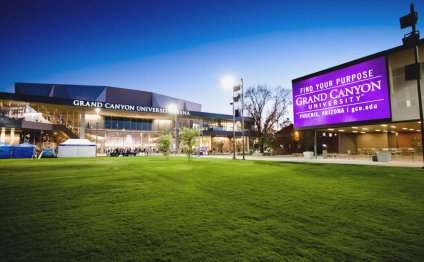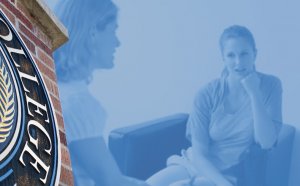
Mental Health Counseling degree Program
The Master of Arts in Mental Health Counseling & Behavioral Medicine is a CACREP-accredited, rigorous program designed to meet the requirements for independent licensure in clinical mental health counseling in the Commonwealth of Massachusetts and other states. The primary objective of the program is to prepare students for careers in clinical mental health counseling with a complementary background in behavioral medicine and neuroscience. Specifically, the focus is to provide general mental health counseling training, including assessment and intervention, for clinical mental health counselors to utilize in a variety of settings. In addition, students gain knowledge and experience applying counseling skills to the prevention and treatment of medical illness. This hybrid is the first program of its kind in the United States and makes the Boston University School of Medicine a leader in preparing master’s-level clinical mental health clinicians. For other highlights of the program and more general information, see this program information on the School of Medicine site.
Mission
The mission of the Mental Health Counseling & Behavioral Medicine (MHCBM) master’s degree program at Boston University School of Medicine is to provide exceptional academic and clinical fieldwork experience that emphasizes the core competencies of clinical mental health counseling with complementary training in behavioral medicine and neuroscience. Accredited by the Council for Accreditation of Counseling & Related Educational Programs (CACREP), the MHCBM Program places great value on excellence, diversity, integrity, social justice, advocacy, collegiality, equality of opportunity, and interdisciplinary collaboration. Our program offers theoretical, experiential, clinical, and research-supported activities related to clinical mental health counseling with adults, adolescents, and children on the Medical Campus as well as in community settings. We accept and educate a broad range of outstanding students who seek careers as clinical mental health counselors. Graduates of the MHCBM Program generally become independently licensed and are trained to work in settings where traditional mental health interventions can be informed by evidence-based practice, an understanding of neuroscience, and strategies to address physical illness and health promotion.
Program Description
The Mental Health Counseling & Behavioral Medicine Program is a two-year Master of Arts program. Our graduates are able to provide direct clinical and mental health counseling services to clients across a wide range of medical, research, mental health, and independent practice settings.
Our curriculum consists of a combination of academic coursework and clinical mental health counseling experience completed in two years of full-time study. Students are encouraged to identify topics of interest, and are provided with education and experience related to those interests. They are also exposed to a wide array of patient populations, clinical topics, and career paths.
Clinical Health Counseling Experience
The program requires that students gain direct experiences in clinical mental health counseling and receive close supervision and support throughout their training. We have training agreements with approximately 100 agencies across greater Boston, which provides a wealth of settings in which students can develop and refine their counseling skills.
Program Requirements
Candidates are required to complete a minimum of 60 credit hours of coursework, as well as fieldwork experience, which constitute our clinical practicum and internship. It is anticipated that students will complete the program in two academic years. The focus of the program is to prepare clinical mental health counselors with additional expertise in promoting health behavior change.
As a CACREP-accredited program, our curriculum meets the standards for CACREP’s eight core areas; we also train students in a manner that reflects the professional standards recommended by the American Counseling Association and American Mental Health Counseling Association. Our program is designed to meet the educational requirements for licensure as a clinical mental health counselor in the Commonwealth of Massachusetts as granted by the Massachusetts Board of Allied Mental Health and Human Service Professionals. Students are encouraged from the outset of their training to investigate the requirements of licensure for other states where they may relocate and are provided with support in ensuring that they complete the necessary coursework required to make them eligible for licensure in those states before they graduate. It is of note that CACREP accreditation is now a requirement for licensure in several states, and the trend is for this to become a national requirement.
Curriculum
The emphasis of our program is on preparing students to provide effective and ethical clinical treatment for a variety of populations, disorders, and settings. Coursework is designed to augment on-site clinical experience and to prepare students for their work, as well as to promote insight of students’ relative strengths and weaknesses, areas of interest, and values.
Our course curriculum is structured in such a way as to provide instruction in basic skills during the first semester, so that students are best prepared to begin their on-site clinical training in the second semester of their first year. An introduction to neuroscience, psychopharmacology and behavioral medicine begins during the second semester. Students take a minimum of 30 credits during their first year. The first year practicum experience consists primarily of closely supervised and observed individual, group, and family therapy conducted in a variety of clinical settings. Students also meet in small groups with fellow students and faculty to process on-site experiences.
During year two, students are given an opportunity to explore more focused areas of interest by choosing elective courses and complete a 720-hour clinical internship where they tend to develop a clinical specialization.
More details about clinical training sites can be found on our website.
The curriculum below is that in which the typical student is enrolled. There is some variability depending on clinical site schedules and other circumstances.
Year 1 (Fall Semester)
- GMS MH 701 Counseling Theory (3 cr)
- GMS MH 703 Counseling Techniques (3 cr)
- GMS MH 704 Group Work Dynamics and Process (3 cr)
- GMS MH 705 Psychopathology (3 cr)
- GMS MH 710 Basic Mental Health Assessment (3 cr)
- GMS MH 901 Orientation to Professional Counseling (3 cr)
- GMS MH 814 Clinical Research Field Work Seminar (3 cr)
Total semester hours: 18 credits
Year 1 (Spring Semester)
- GMS MH 706 Social and Cultural Foundations (3 cr)
- GMS MH 707 Research and Evaluation (3 cr)
- GMS MH 709 Neuroscience for Mental Health Professionals (3 cr)
- GMS MH 717 Theory and Practice of Child and Adolescent Counseling (3 cr)
- GMS MH 810 Psychopharmacology (3 cr)
- GMS MH 902 Practicum Supervision (3 cr)
RELATED VIDEO



Share this Post
Related posts
Masters of Mental Health Counseling
BECOME ELIGIBLE FOR NY STATE LICENSURE AS A MENTAL HEALTH COUNSELOR For less in tuition costs than other programs! The City…
Read MoreCity College Mental Health Counseling
*Note: The program admits for the fall semester only. Total Credits: 60 GRE Required: No Minimum TOEFL/IELTS Scores: 550…
Read More










